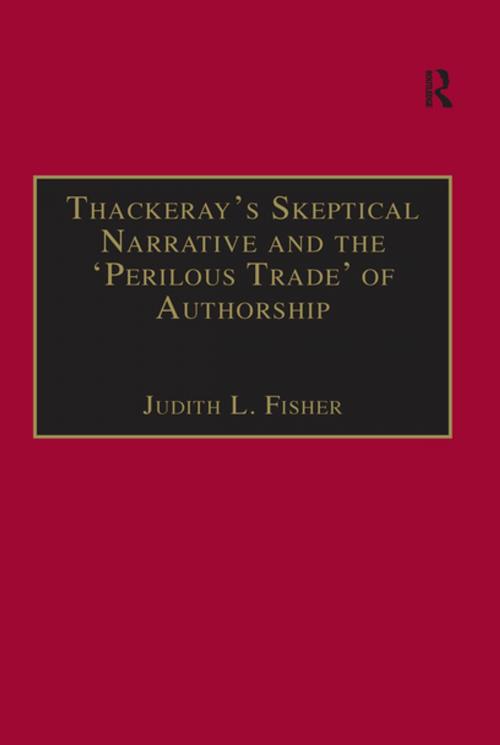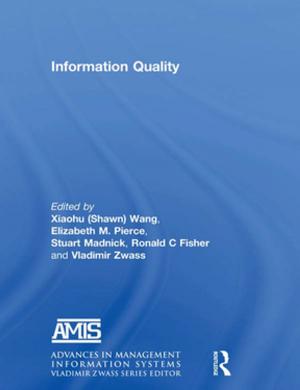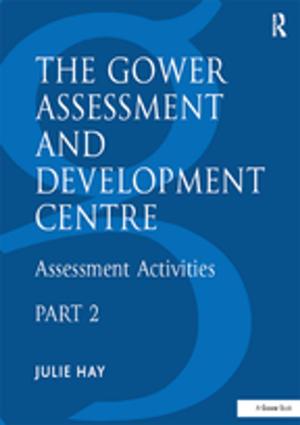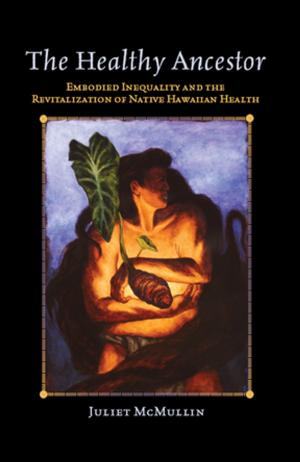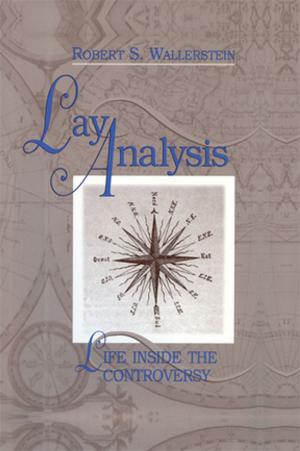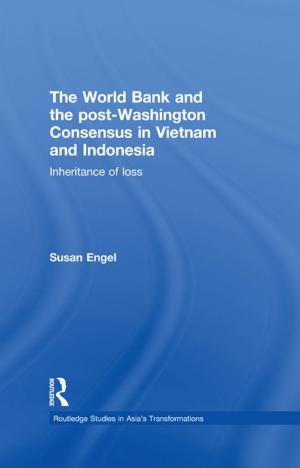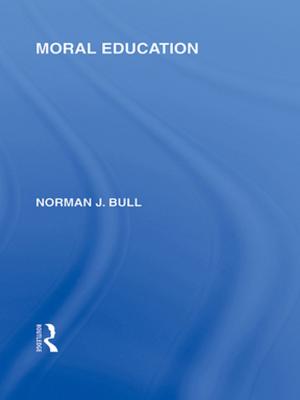Thackeray’s Skeptical Narrative and the ‘Perilous Trade’ of Authorship
Fiction & Literature, Literary Theory & Criticism| Author: | Judith L. Fisher | ISBN: | 9781351895392 |
| Publisher: | Taylor and Francis | Publication: | March 2, 2017 |
| Imprint: | Routledge | Language: | English |
| Author: | Judith L. Fisher |
| ISBN: | 9781351895392 |
| Publisher: | Taylor and Francis |
| Publication: | March 2, 2017 |
| Imprint: | Routledge |
| Language: | English |
Drawing on the rhetorical work of James Phelan, Wayne Booth's ethical criticism, recent work on William Makepeace Thackeray, as well as an understanding of the role of skepticism in eighteenth- and nineteenth-century English thought, Thackeray's Skeptical Narrative and the "Perilous Trade" of Authorship makes a substantial contribution to nineteenth-century reading practices, as well as narratology in general. Judith Fisher combines in this study rhetorical and ethical analysis of Thackeray's narrative techniques to trace how his fiction develops to educate his reader into what she terms a "hermeneutic of skepticism." This is a kind of poised reading which enables his readers to integrate his fiction into their life in what Thackeray called "a world without God" without becoming pessimistic or fatalistic. Although Thackeray's narrative strategies have been the subject of study, most have focused on Vanity Fair and Henry Esmond only, and none look as closely as does this study at actual rhetorical techniques such as his use of pronominalization to interpolate the reader into his skeptical discourse. Fisher also brings her analysis to bear on The Adventures of Philip and The Virginians, Thackeray's last two complete novels, both of which were critical failures even as contemporary critics acknowledged their stylistic excellence. This is the first study to attempt to understand the puzzle of those two books; Fisher recovers them from their marginalized position in Thackeray's oeuvre. Fisher expertly weaves an accessible narrative theory with thoroughgoing knowledge of Thackeray's life in an integrated reading of his entire works. Reading Thackeray holistically in spite of his own disruptive practices, she does full justice to his critical skepticism while elucidating his canon for a new readership.
Drawing on the rhetorical work of James Phelan, Wayne Booth's ethical criticism, recent work on William Makepeace Thackeray, as well as an understanding of the role of skepticism in eighteenth- and nineteenth-century English thought, Thackeray's Skeptical Narrative and the "Perilous Trade" of Authorship makes a substantial contribution to nineteenth-century reading practices, as well as narratology in general. Judith Fisher combines in this study rhetorical and ethical analysis of Thackeray's narrative techniques to trace how his fiction develops to educate his reader into what she terms a "hermeneutic of skepticism." This is a kind of poised reading which enables his readers to integrate his fiction into their life in what Thackeray called "a world without God" without becoming pessimistic or fatalistic. Although Thackeray's narrative strategies have been the subject of study, most have focused on Vanity Fair and Henry Esmond only, and none look as closely as does this study at actual rhetorical techniques such as his use of pronominalization to interpolate the reader into his skeptical discourse. Fisher also brings her analysis to bear on The Adventures of Philip and The Virginians, Thackeray's last two complete novels, both of which were critical failures even as contemporary critics acknowledged their stylistic excellence. This is the first study to attempt to understand the puzzle of those two books; Fisher recovers them from their marginalized position in Thackeray's oeuvre. Fisher expertly weaves an accessible narrative theory with thoroughgoing knowledge of Thackeray's life in an integrated reading of his entire works. Reading Thackeray holistically in spite of his own disruptive practices, she does full justice to his critical skepticism while elucidating his canon for a new readership.
